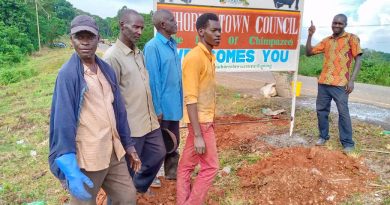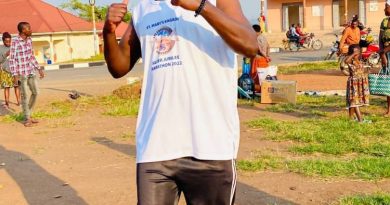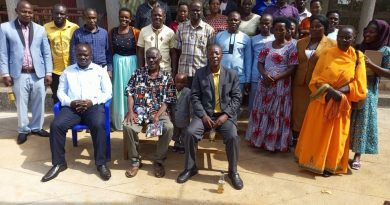Protect yourself from Ebola-Health is Wealth
On 20th September, 2022 Uganda confirmed the first Ebola case. As Muhorro Town Council, we care about your health and we are doing everything within our capacity to provide you with all the necessary information on how you are protect yourself from this deadly Ebola Virus Diseases.
Key facts
- Ebola virus disease (EVD), formerly known as Ebola haemorrhagic fever, is a rare but severe, often fatal illness in humans.
- The virus is transmitted to people from wild animals and spreads in the human population through human-to-human transmission.
- The average EVD case fatality rate is around 50%. Case fatality rates have varied from 25% to 90% in past outbreaks.
- Community engagement is key to successfully controlling outbreaks.
- Good outbreak control relies on applying a package of interventions, namely case management, infection prevention and control practices, surveillance and contact tracing, a good laboratory service, safe and dignified burials and social mobilisation.
- Vaccines to protect against Ebola have been developed and have been used to help control the spread of Ebola outbreaks in Guinea and in the Democratic Republic of the Congo (DRC).
- Early supportive care with rehydration, symptomatic treatment improves survival. Two monoclonal antibodies (Inmazeb and Ebanga) were approved for the treatment of Zaire ebolavirus (Ebolavirus) infection in adults and children by the US Food and Drug Administration in late 2020.
- Pregnant and breastfeeding women with Ebola should be offered early supportive care. Likewise vaccine prevention and experimental treatment should be offered under the same conditions as for non-pregnant population.
The Ebola virus causes an acute, serious illness which is often fatal if untreated. EVD first appeared in 1976 in 2 simultaneous outbreaks, one in what is now Nzara, South Sudan, and the other in Yambuku, DRC. The latter occurred in a village near the Ebola River, from which the disease takes its name.
The 2014–2016 outbreak in West Africa was the largest Ebola outbreak since the virus was first discovered in 1976. The outbreak started in Guinea and then moved across land borders to Sierra Leone and Liberia.
The virus family Filoviridae includes three genera: Cuevavirus, Marburgvirus, and Ebolavirus. Within the genus Ebolavirus, six species have been identified: Zaire, Bundibugyo, Sudan, Taï Forest, Reston and Bombali.





